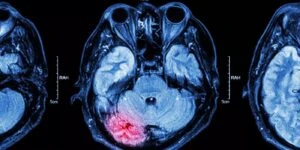
Traumatic Brain Injury, often referred to as TBI, is usually caused by a strong force, blow, impact or penetrating projectile to the head. Commonly the brain collides with the inside of the skull, brain tissue and nerve fibers may be torn, and bleeding occur putting pressure on the brain. With mild injuries confusion or headache may occur. More severe injuries can result in disability, long term impairment, or death.
TBI is commonly caused by falls, motor vehicle accidents, and penetrating injuries such as a gunshot wound. It is not uncommon for TBI to be caused as well by sports or recreational related causes.
SYMPTOMS OF A TRAUMATIC BRAIN INJURY
Symptoms often occur immediately after the injury, or they may emerge weeks or months afterward. Because TBI often result include brain bruising and swelling of the brain, a severe injury may cause:
- Loss of consciousness
- Persistent semi-conscious state
- Coma
- Seizures or convulsions
- Slurred speech
- Frequent vomiting
- Confusion
- Agitation
- Changes in mood
- Changes in sensory perceptions
TBI can have devastating consequences. Cognitive problems, sensory loss, personality changes, coma, and long-term neurological problems are common results of TBI. Obviously accompanying this can be loss of ability to work, loss of income, and tremendous medical and long-term care expenses.
After suffering a TBI, there can be a whole raft of problems that emerge and warning signs that someone is seriously suffering from such an injury. One is an intelligent problem or symptom. After suffering a TBI, people will have a change in their thinking, including a delayed processing time. There may also be memory and learning issues, along with reasoning and shortened concentration.
Second, there may be issues with executive functioning, including multi-tasking, being able to solve problems, and organizing thoughts. Third, there may be serious communication problems. With respect to this, this usually results in an inability to properly convey one’s thoughts. Fourth, there may be social problems.
This may be an inability to pick up on normal social cues and inability to even form the right words at the time they are being thought. Fifth, there may be changes in behavior. This might be exhibited in a lack of awareness of one’s self, engaging in risky or difficult social situations, or acting out in an angry way.
There may be emotional changes, which includes an inability to empathize with other people, becoming very irritable, angry, or become moody towards others. Seventh, someone could also experience problems with their senses. Many people have ringing in their ears, have vision issues, a reduced hand-eye coordination, and most commonly, have balance issues.
For a free legal consultation with a Personal Injury Lawyer
COMMON REASONS FOR TRAUMATIC BRAIN INJURIES
- Work accidents
- Construction accidents
- Car accidents
- Truck accidents
- Motorcycle accidents
- Bicycle accidents
- Pedestrian accidents
- On the job injuries
While there are occasions when traumatic brain injuries simply go away on their own, without medical care, more often than not they do not. Further, more often than not, they also go undiagnosed. It is crucial to get the medical care you need in order to have your traumatic brain injury resolved. If you do not, it is likely that your traumatic brain injury will simply worsen with time.
We Are committed to winning and winning big for our clients





